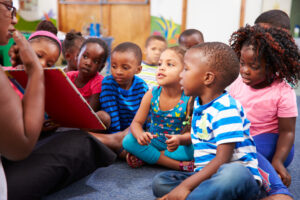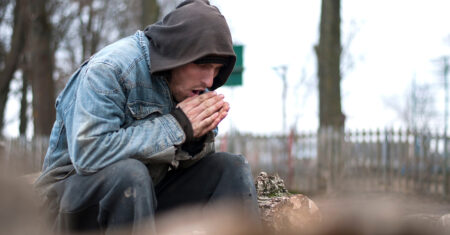- A few hundred meters from the Gaza fence in Israel, agricultural fields burnt by fires started by Molotov cocktails affixed to kites flying from Gaza in 2018
-
Zak Witus
“He shall judge between the nations, and shall arbitrate for many peoples; they shall beat their swords into plowshares and their spears into pruning hooks; nation shall not lift up sword against nation, neither shall they learn war any more” (Isaiah 2:4)
As Samar watched Israel drop bombs on residential buildings in Gaza last month, she remembered what it was like being bombed. When the Syrian revolution arrived in Samar’s home city of Homs, she and her husband Jad had just barely finished furnishing their new apartment. They had married on September 21, 2010, just six months before the popular uprising against the authoritarian president Bashar al-Assad began in the city of Deraa, not far, incidentally, from the Israeli-occupied Golan Heights.
In April 2011, Assad sent soldiers and militiamen into Homs to crush the rebellion. The Syrian army confronted the demonstrators and those demanding freedom. In the early morning of April 19, Assad’s forces fired on a gathering of almost thousands of anti-government protesters in Al Sa’a Square (New Clock Tower Square) who had been participating in an all-night peaceful sit-in. Human Rights Watch counted 17 people killed that day, but Samar is sure that there were many more.* She could hear the shooting from her house, but felt a pained helplessness that there was nothing she could do to help. Even now, as Samar tries to forget that terrible night, the pop-pop-pop of the gunfire echoes in her ear.
In May, Assad sent in the tanks to quash the rebellion.
Amidst the intensifying fighting, Samar, Jad, and their eight-month-old daughter Meriam left their home, which was in a part of Homs more prone to clashes between the people and the government. The family moved across the city to Samar’s parents’ apartment in a safer section of Homs. Even still, one night in her parents’ apartment, as the family lay sleeping in what they thought was the safest room in the house, a bullet shot through a window overlooking the street below, flying through an interior wall into the room where Samar, Jad, and Meriam were sleeping.
“Is everyone still alive?” Samar asked, lifting herself up in bed. Mashallah, they were all still alive. Everyone laughed. They were all still alive.
That night, they dismantled the bed. From then on, Samar, Jad, and Meriam would sleep on the floor, making themselves more difficult to hit.
Meanwhile, Assad’s soldiers looted their apartment across the city, taking the sofas, TV, bed, dresser, fridge—all the belongings that they had just purchased for their new life together.
In February 2012, having thus far failed to retake the city, the Syrian military bombed Homs relentlessly, forcing Samar and her extended family to flee north to Aleppo. The fighting in Aleppo intensified, and Samar, Jad, and Meriam sought safety in Amman, Jordan, where they applied for refugee status with the United Nations. As they waited to be resettled, Samar gave birth to her second daughter, Seedra. Since 2016, Samar has lived in Chicago, where she and her husband have started building a new and safe life for themselves and their children. Samar is a teacher at a local refugee aid organization and Jad is a pastry chef. Meriam and Seedra attend Chicago Public Schools.
The family has lost many of their relatives and friends in Syria: some of them died by bombing or under torture, some were arrested by the regime and disappeared.
Our roots are not the same. I am an American Jew from the suburbs of Detroit. Growing up, my family and community shared stories about the horrors of 20th century antisemitism. As a child in Hebrew school, I toured the West Bloomfield Holocaust Museum, where I first remember seeing the gut-wrenching images of Jewish bodies emaciated in black and white, huddled together in ramshackle wooden lodges or squatting in the dirt. Another time in Hebrew school, during a class on the Holocaust, an instructor had the class do a kind of “choose your own adventure” exercise, asking the young students to make hypothetical life-or-death choices about whom to trust, whether and when to run or to hunker down. In more than one iteration, our class made the wrong choice and we were sent to the concentration camps.
For that same class, I did a project on family history in which I interviewed my grandpa, Sol. He told me about his own father, Abraham, who had fled from Odessa, Russia (now Ukraine), after being shot in the foot during a firefight. Abraham traveled around, or maybe across, the Black Sea to Istanbul, then the capital of the Ottoman Empire, where he found shelter in the home of a rabbi. From there, Abraham journeyed (again, by unknown means) to the Hague, boarding the ship of a Norwegian captain on his way to North America. When they docked in New York City, Abraham disembarked and never got back on.
For Samar, the struggle of the Palestinian people evokes memories from her own life. Samar lived under bombardment. Samar recalled the pain she felt looking into Meriam’s eyes when they listened to the sounds of explosions outside. She saw her home destroyed. And she has watched from half a world away as the culprits continue to evade accountability.

- Samar’s parents’ house, bombed after the family left for Aleppo
-
Samar
Samar knows that in less than a minute you could lose everything. In a few months, you could find strangers living in your home. In Syria, people demanded freedom and were slapped down with the heavy hand of the state. In Palestine, people tried to protect their homes, pray in peace in Al Aqsa, and they too were smacked down, but by the arm of a state that’s an ally of Samar’s new home country.
The struggle of the Palestinian people evokes painful memories for me as well. I spent five months in Israel/Palestine volunteering as a human rights defender during the spring of 2018. Through communal storytelling and generational trauma, the violence of 19th and 20th century antisemitism has left invisible wounds on my heart and in my bones. While it’s wrong to equate Israel’s crimes to the Nazi Holocaust, the severe harm inflicted by Israel via its military, police, and government policy onto the Palestinians bears a marked resemblance to some of the violence experienced by Jews at the hands of antisemitic regimes in Europes, including the Nazis, their collaborators throughout the continent, and imperial Russia. When I visited the lands along the periphery of the Gaza Strip three years ago, just after another Israeli assault on the coastal enclave amidst the Palestinian Great March of Return, I looked at the militarized fencing and remembered Warsaw and the ghettoization of its Jews. How can you witness the 14-year siege of Gaza—punctuated with now four major aerial bombardments—and not feel the weight of the epic historical tragedy: that the oppressed had become the oppressor, that a ghettoized people had forced their supposed enemies into a ghetto, that the child, beaten black and blue by the world, grew up to become an abuser?
On that trip to the Gaza periphery, I picked up the casing of a high-caliber bullet that was lodged in the reddish dirt. An Israeli bullet. How old was the Jewish man who shot it? Was he in his early 20s, no older than me? What did the soldier feel as he pulled the trigger? Fear? Uncertainty? Anger?
I brought the bullet casing back to America. I’ve taken it with me from apartment to apartment over the years. The metal casing is bent inward near the opening so that it still holds a sample of the soil from which it was unearthed.
- The remains of rockets fired from Gaza on display outside the Sderot police station in 2018
-
Zak Witus
Although we come from different places, we’re united by compassion, common values, and demands of our home country, the United States. Following the entreaties of Isaiah, a prophet to Jews and Muslims alike, we demand that the U.S. stop selling weaponry and sending military funding to any state in the Middle East with a documented history of grave human rights abuses. We’re calling for the U.S. government to do nothing more than honor its own laws, namely the Leahy Law, which explicitly prohibits the sale of weapons to grave human rights abusers. This prohibition applies not only to Israel, but also to rogue states like Saudi Arabia and the United Arab Emirates, which, among other things, have waged a genocidal war in Yemen using hundreds of millions of dollars worth of U.S. arms and ammunition.
We know that a policy of benign neglect or isolation will not suffice. We need reparative justice. The U.S. has discriminated against the Palestinians and in favor of the Israelis for (at least) the last half-century. It has inserted itself inextricably into the situation, cocreating with the Israeli government the apartheid system that exists today. Now we as Americans owe Palestinians and Israelis a remedy in the form of nonviolent aid (because by enabling Israel’s destructive behavior, we have also harmed Israel and Israelis as well, fueling the fire which has burned Palestinians and Jews too). Since we recognize the right of all peoples to self-determination in the places they call home, we call on our government to not only suspend funding for F-16 fighter jets, the siege of Gaza, illegal child detention, and settlement expansion; we demand that the U.S. government, acting as the American people’s fiduciary, pay for peace. Pay for water pipes and power plants in Gaza as well as farms and fig trees in the Galilee. By helping to erect this scaffolding, we at least give Palestinians and Israeli Jews a chance to grow together and flourish. v
*The precise number of victims of the sit-in is still not known to this day for two main considerations: First, the security forces that stormed the sit-in arrested a large number of participants, and also pulled out the bodies of the dead, and none of the protesters could return to the square to identify the dead bodies and conduct the documentation that took place after the massacres that Syria later witnessed. The victims were able to know their fate, and whether they were among the kidnapped or killed, and some of them learned about the fate of their children years after the sit-in was dispersed. Second: This massacre was one of the first massacres that Syria witnessed during the popular protests, and therefore the documentation skills that people developed later were not available at that time.
Samar is a teacher at a local refugee aid organization in Chicago. She has withheld her last name and used aliases for her husband and children in this essay out of fear of retaliation by the Syrian government. She has several family members still residing in Syria.
Zak Witus is the great-grandchild of refugees from the former Russian empire. He holds a master’s in Middle Eastern Studies from the University of Chicago. Zak works as the Volunteer Coordinator at the Syrian Community Network.







